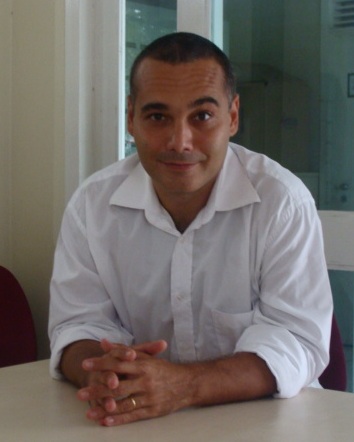Sidarta T.G. Ribeiro, Ph.D.

- Title
- Full Professor, Director
- Department
- Brain Institute
- Institution
- Federal University of Rio Grande do Norte
- Address
-
Av. Nascimento de Castro, 2155
RN 59056-450 - City, ZIP
- Bairro Morro Branco, Natal, 59056-450
- Country
- Brazil
- Phone
- 84 3215-2709
- [email protected]
- Website
- http://www.neuro.ufrn.br/aboutus/members/investigators/sidartaribeiro

- Research field
- Neuroscience
- Award year
- 2001
- Country of origin
- Brazil
- Mentor name
- Miguel A.L. Nicolelis, Ph.D.
Research
This lab investigates the molecular, cellular, circuit-level and psychological mechanisms responsible for the cognitive role of sleep. Explicit memories, i.e. memories of places, things and events involve two different brain portions: while the hippocampus acts as a short-term buffer, memories eventually move to the cerebral cortex. Investigating rats with multi-electrode neuronal recordings and in situ hybridization for plasticity-related immediate-early genes, it was found that memories of novel objects fade within minutes in the hippocampus, but persist reverberating in the cortex during sleep many hours after the end of object exploration. The results indicate that the two phases of sleep cooperate to promote the propagation of memories from their entry point (hippocampus) to their final destination (cortex). The non-dreaming phase of sleep (slow-wave sleep, SWS) reverberates and amplifies recently acquired changes in selected synaptic circuits. The dreaming phase of sleep (rapid-eye-movement sleep, REM) switches on the cortical expression of genes related to memory stabilization and propagation. The results suggest that novel experience is followed by multiple waves of cortical plasticity as sleep cycles recur. As a consequence, memories become more dependent on cortex than hippocampus as sleep recurs, migrating from their original entry circuits to deeper cortical networks. The current goal of this lab is to elucidate how cortico-hippocampal interactions and experience-dependent synaptic plasticity during sleep contribute to the consolidation of memories in rodents. In parallel, electroencephalography, videogame playing and dream reports are used to probe the adaptive value of dreams in humans.
A second research line in this lab is the investigation of communication and symbolic competence in non-human animals. The focus is the marmoset (Callithrix jacchus), a highly vocal species of new-world monkey. At present this lab is dedicated to ethological studies of the vocal repertoire of marmosets, and to the mapping of calcium-dependent immediate early gene expression in brain areas related to hearing and vocal behavior.